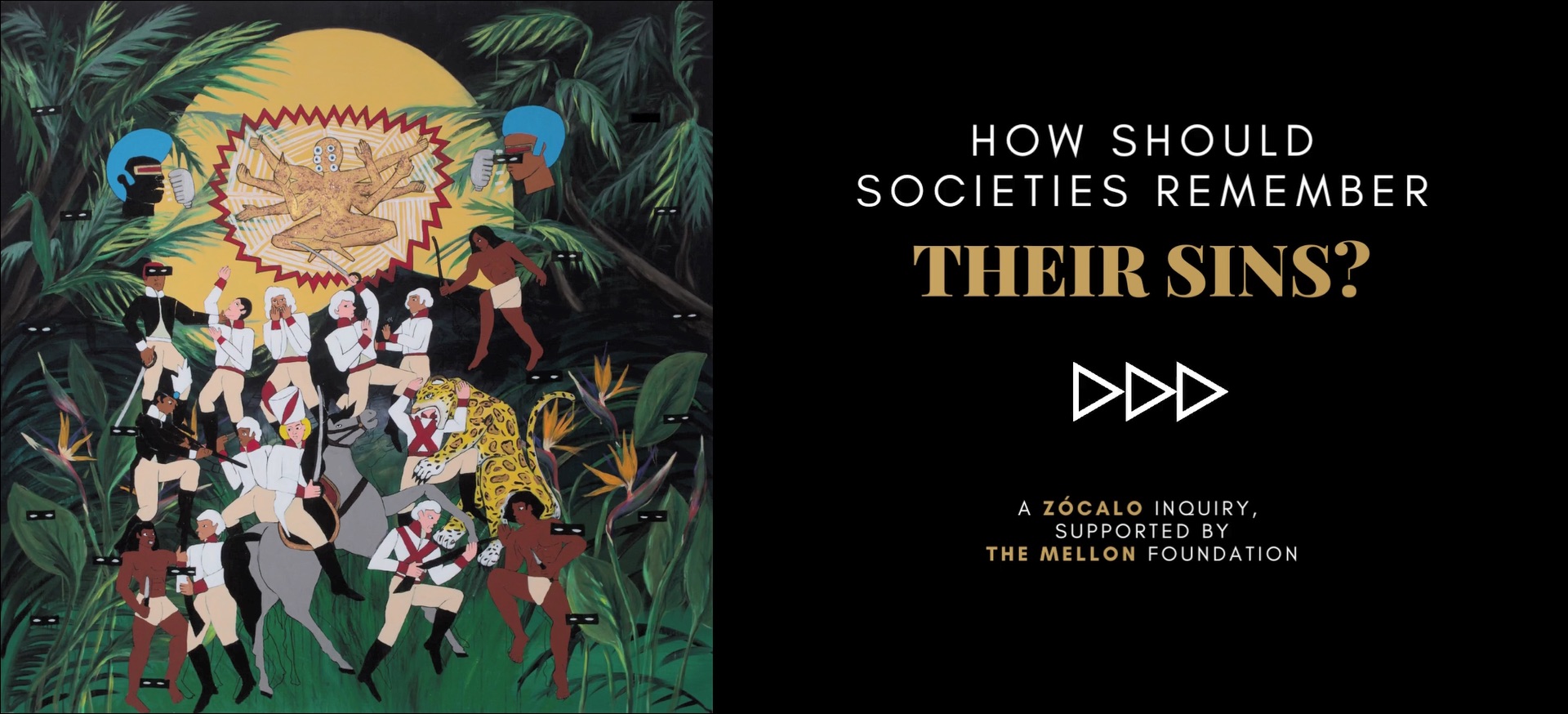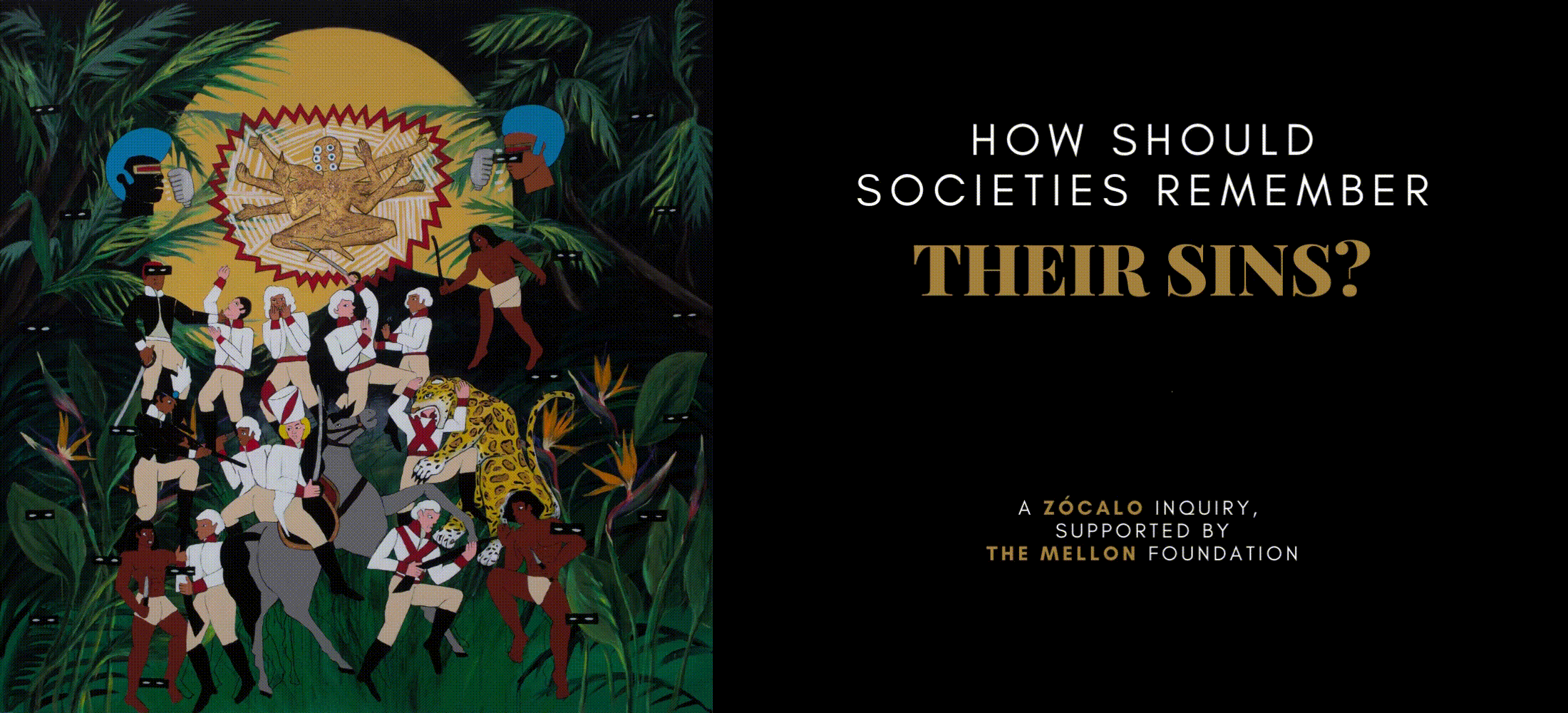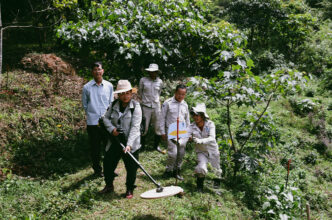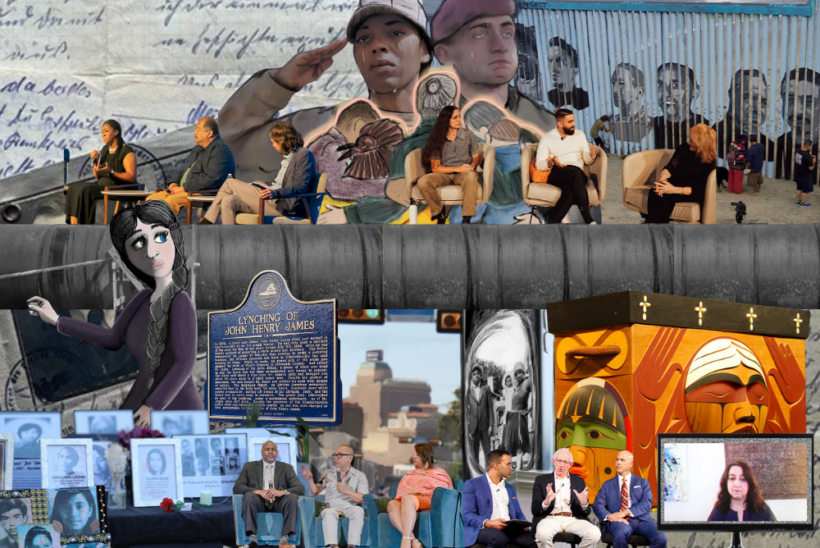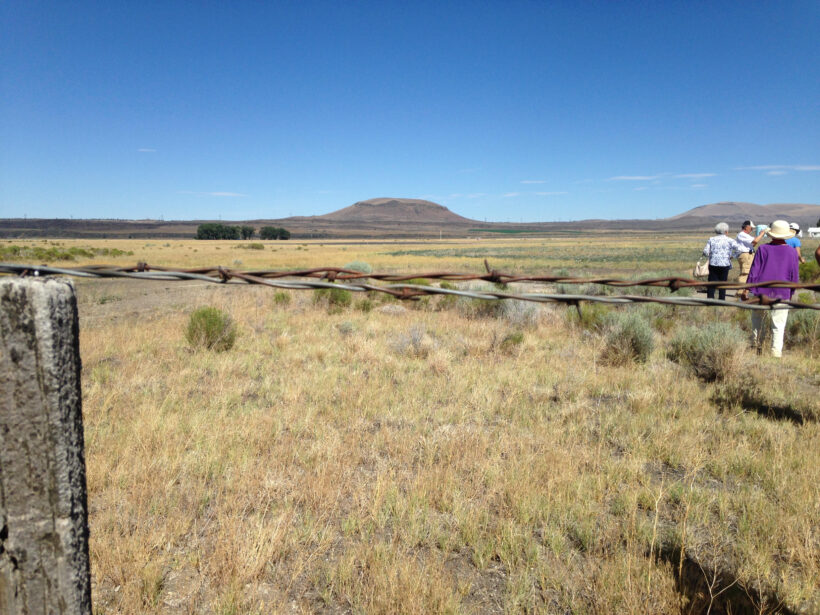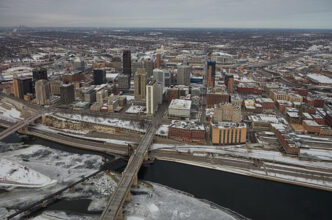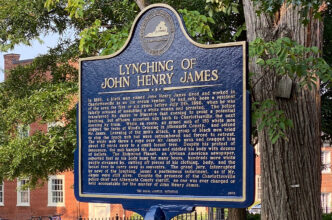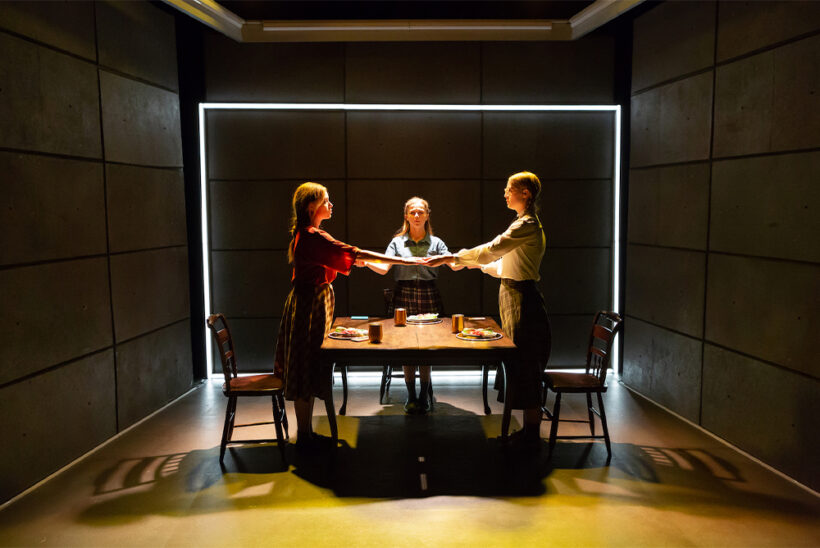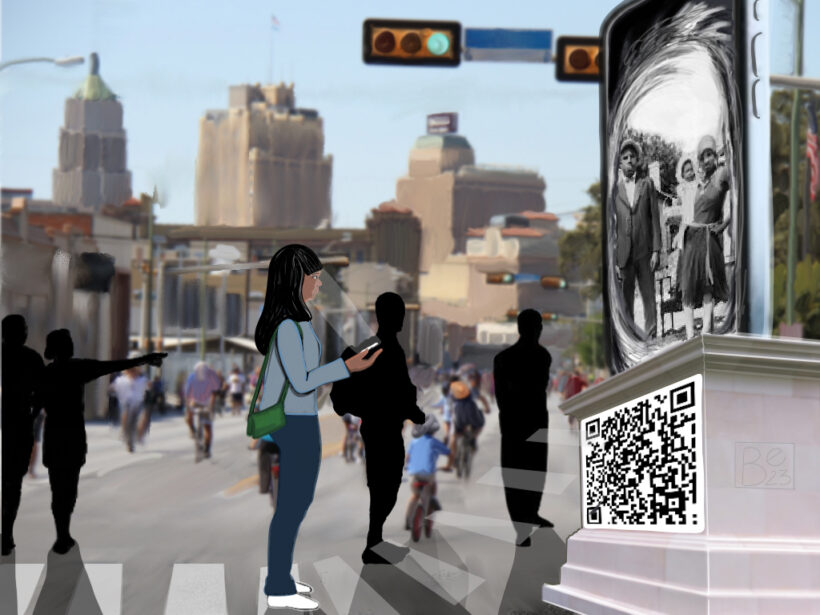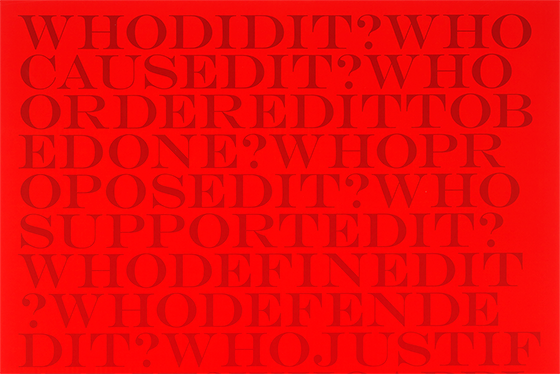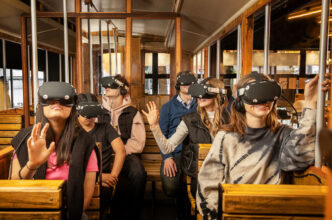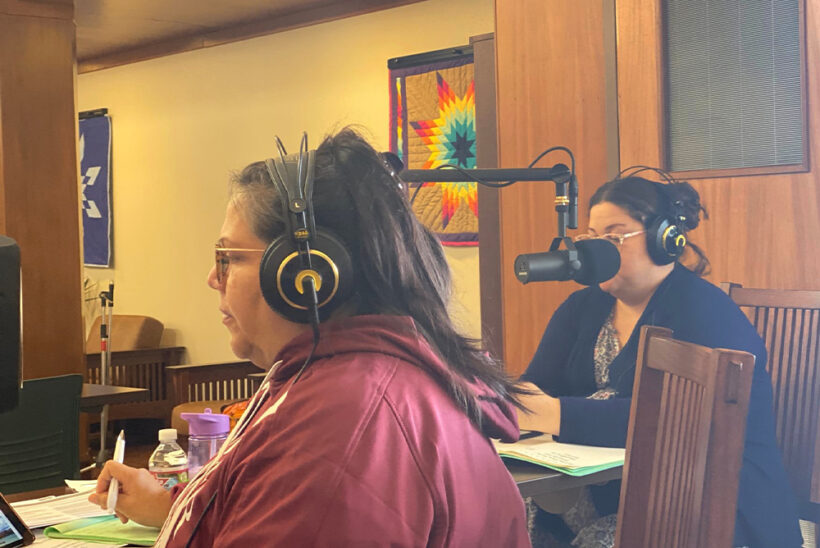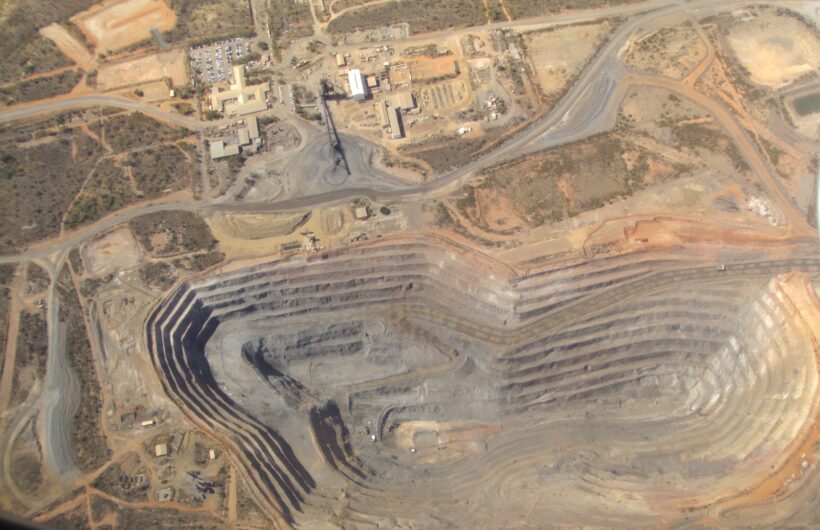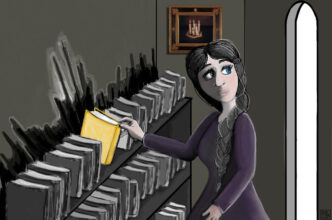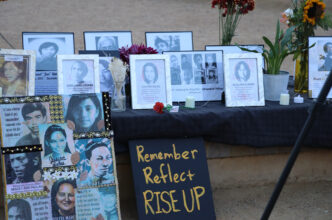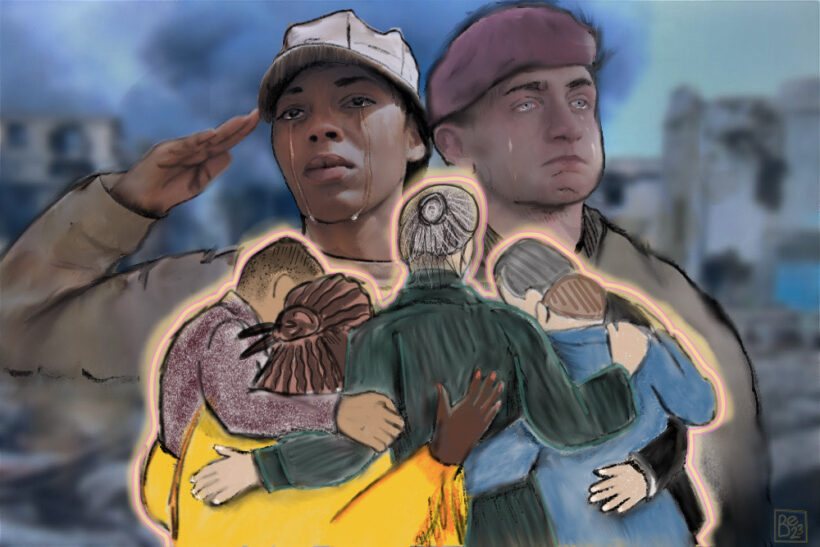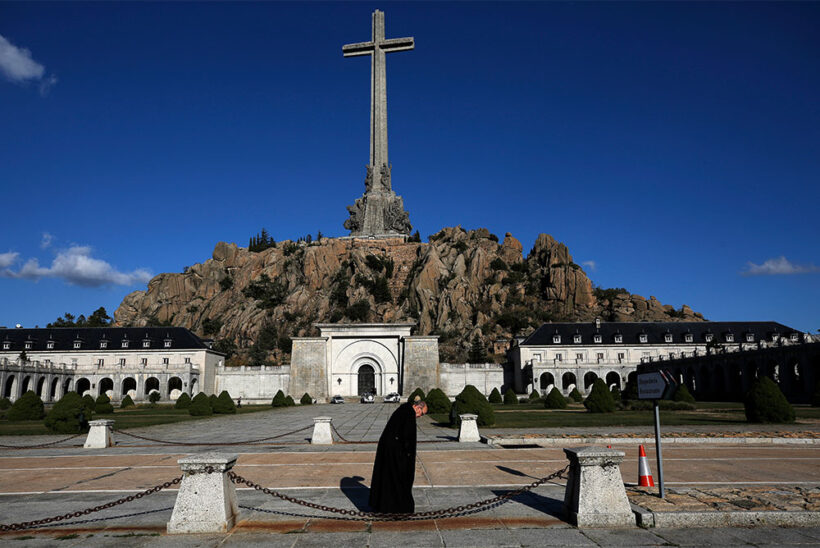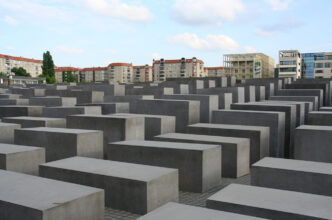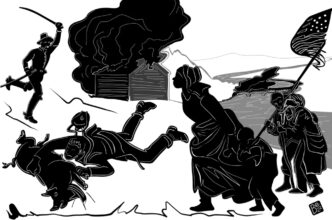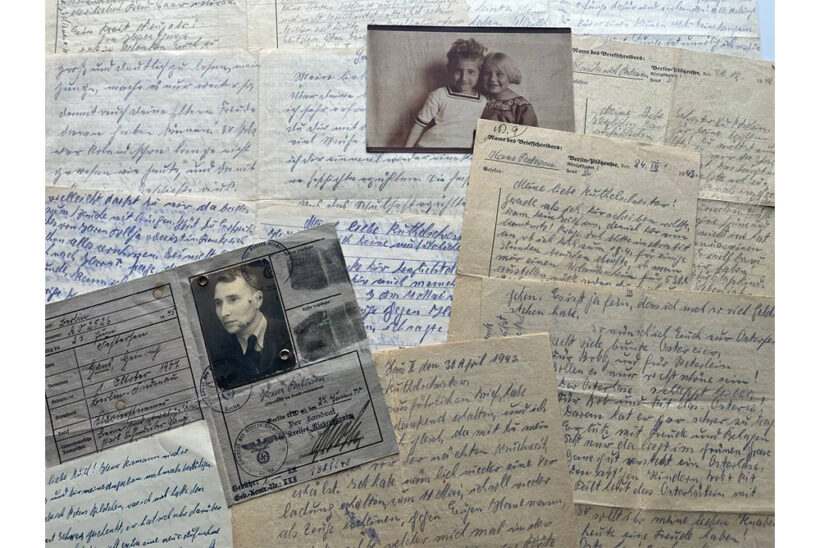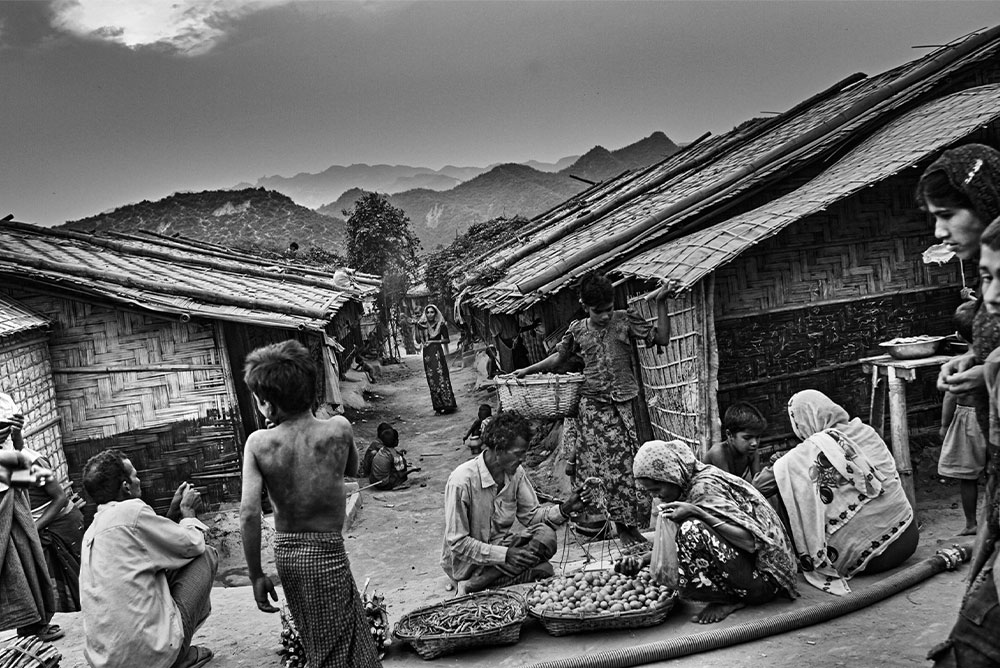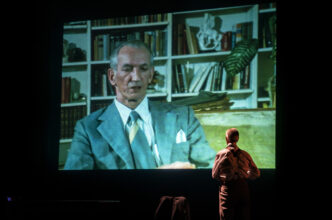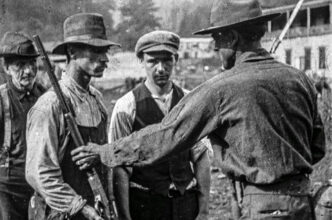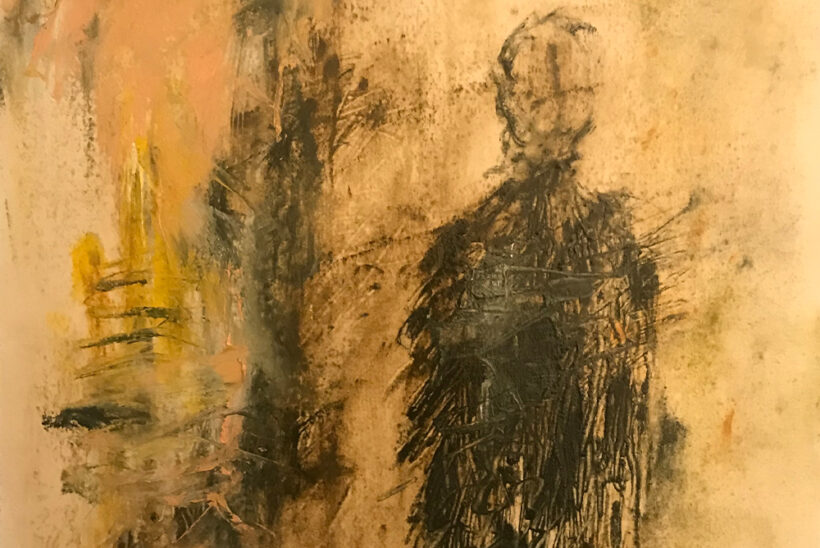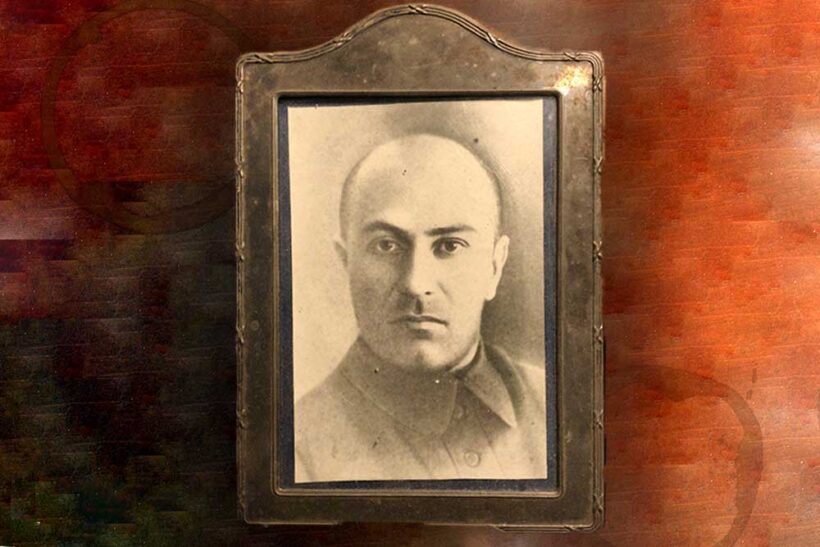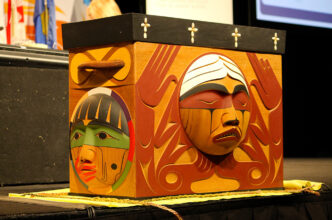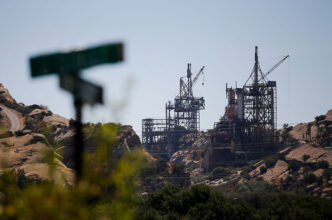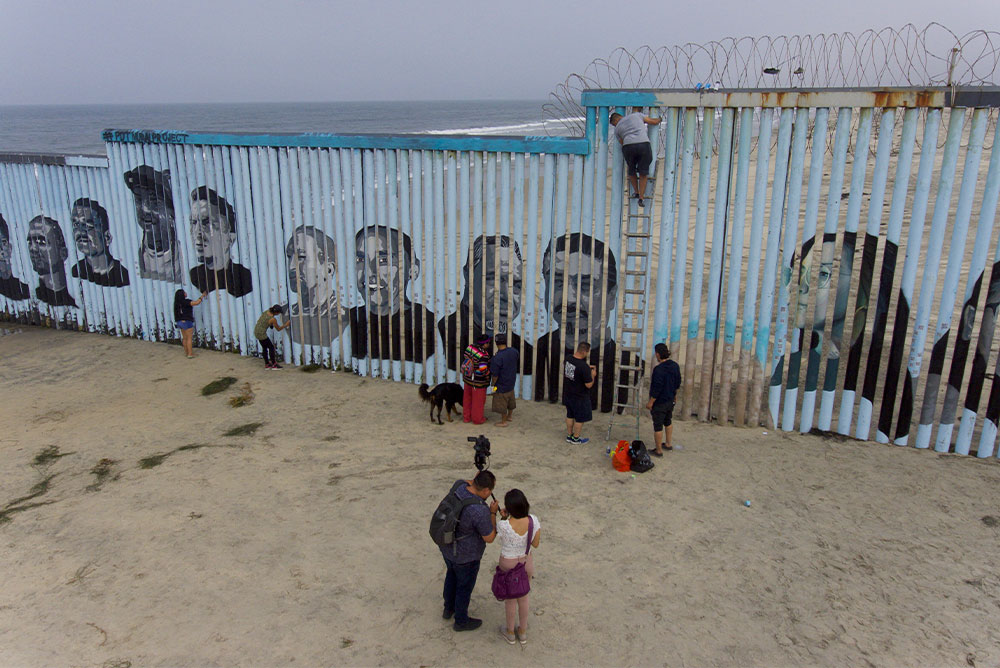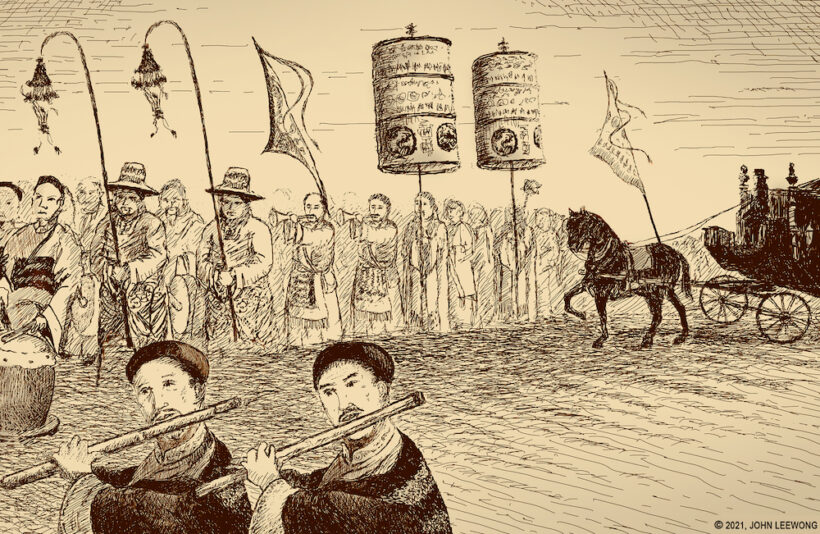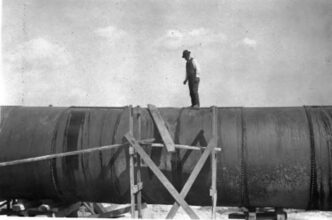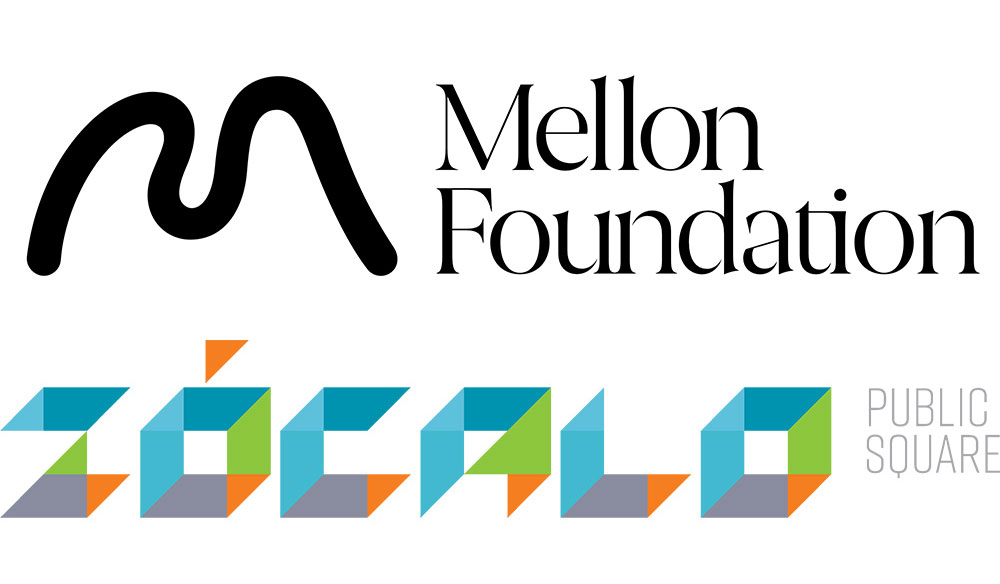Image courtesy of the artist. Photograph by Claudio Rocha.
Fifty Years of Living with America’s Unexploded Bombs
Laos Was Collateral Damage in the U.S.’ Secret War. The Wounds Are Visible in the Land and in Generations Still Waiting on Justice
A horrific image haunts me: my father amputating a little girl’s leg to stop her from bleeding to death. The girl attended the same village school as my siblings and me. She was about my age, around 5. As blood flowed from her tiny body, my father’s snow-white lab coat turned bright crimson. The girl’s cries and her mother’s painful screams terrified me. I stood frozen, unable to turn away until …
Facing Our Collective Wounds With Generous Hope
Historian William Sturkey Reflects on Confronting Our Dark Past, and Moving Forward
I’ve felt the power of reconciliation wash over me. I felt it at the National Memorial for Peace and Justice in Montgomery and at the War Remnants Museum in Saigon. I felt it when a family of …
Misread, Illegible, Invisible: Searching for a Vocabulary for Tule Lake
A Descendant of a Japanese American Concentration Camp Survivor Reckons With Wartime Incarceration
Out the front windows of our bus, we could see acres of sun-dried grasses in a hot and arid Northern California summer. On either side of the road: barbed wire fences, like the ones …
A Black Neighborhood, Upended by a Highway, Looks to Reconnect
Communities of Color in St. Paul, and Across the Country, Are Making Efforts to Remember and Rebuild
How do you remember—and reconnect—a neighborhood destroyed by highway construction over a half-century ago?
Since 1983, this has been the mission of Saint Paul, Minnesota’s annual Rondo Days festival. “[You see] everyone you grew up with and everybody you’ve ever known, your childhood and everything,” said former Rondo resident Brian White, Sr. in 2015. “You might see people you haven’t seen since you were five, six years old out here” …
Reckoning With Racist ‘Lynch Law’ and Rape Charges, a Century Later
States Like Virginia Are Reexamining Long-Ago Cases on the Path Toward Redress and Redemption
On July 12, 1898 John Henry James’ body, riddled with bullets, hanged from a locust tree. The Virginia man had been in the custody of the Albemarle County sheriff, awaiting grand jury action on a rape allegation, when a mob of 150 people kidnapped and killed him.
James, the story went, sexually assaulted one Julia Hotopp. (I belabor here, in confirming your suspicion that James was Black and Hotopp white.) …
A Playwright’s ‘Wait … What?’ Approach to Difficult History
Mining Shock and Disbelief to Connect Audiences With the Past, Present, and One Another
We live in a time when we are besieged with information, when it’s easy to feel numb to absurdity and bad news. I offer that sitting in a theater, collectively breathing …
In San Antonio, Remembering More Than the Alamo
Innovators Are Using Digital Tools to Tell Stories of the City’s Black and Latinx History
In San Antonio, Texas, one memorial—the church-turned-fort-turned-shrine of the Alamo—dominates the landscape. At the Alamo, the artifacts, images, and captions on display tell a unified story: That martyrs died there for Texas independence and that their sacrifice will never …
The question of how a society should remember its transgressions carries with it substantial weight. How does one begin such work? Is the act of remembering, in and of itself, enough? And more importantly, can the intensive work of confronting one’s history ensure the desired outcome—that we will not be doomed to repeat the horrors of the past?
While some societies have grappled with their pasts with varying degrees of success, there is no ready-to-use template for Americans to adapt. In broad terms, when other nations have addressed their past crimes, the events were more recent, rather than centuries old; the work is often done under the auspices of a transitional government’s truth commission …
Event: How Does Confronting Our History Build a Better Future?
Panelists for ‘How Does Confronting Our History Build a Better Future?’ Help Us Imagine How to Pave a Hospitable Path Forward
Watch the event and read the Takeaway by editor Talib Jabbar.
Environmental activist and hip-hop artist Xiuhtezcatl Martinez (Xochimilco), L.A. LGBT Center communications officer and former editor-in-chief of Out magazine Phillip Picardi, and “On Being” founder, executive producer, and host Krista Tippett visit Zócalo to discuss how society might draw strength and coax vision from the shortcomings and failures of its collective past …
My Ride in a German Time Machine
Virtual Reality Took Me to 1926 Cologne. I Found What a City Had Lost—And What Our Democratic Future Needs
I’m not much for tourist attractions, which TimeRide—which also operates in Dresden, Munich, Berlin, and Frankfurt—most certainly is. I took the tour, which involves entering a storefront on Cologne’s Old Market and sitting in a streetcar inside, after my colleagues at a Cologne-based democracy NGO suggested I try it. I’m glad I did.
Because TimeRide suggests possibilities not just for remembrance of difficult pasts, but also for how communities envision …
Following in My Cherokee Great-Grandfather’s Footsteps
I Work With Tribes Across the Country to Honor Our Ancestors—And Ensure Our Survival
I started working in repatriation efforts before I even knew what the term meant.
But repatriation—bringing our ancestors home—is in my blood. I grew up in a Cherokee community in Chewey, Oklahoma, in the foothills of the Ozarks …
I’m Indigenous Australian, and I Work for a Mining Company
For Over 20 Years, I’ve Been Trying to Change an Industry That Has Excluded, Displaced, and Exploited Native People
People like me are go-betweens, walking in two worlds. We are translators for companies and communities. We help them understand each other to achieve mutual benefits …
Can Fiction Teach Us How to Live in a World Full of Suffering?
Reading and Writing Can Help Us Understand the Difficult Past and Imagine Better Futures
Any work of fiction is an investigation of aftermath, borne of the world that has already occurred. Fiction offers readers as well as writers the possibility to explore past transgressions and raise complex ethical and intellectual questions about responsibility—and culpability, guilt, betrayal, and remorse …
Event: Why Isn’t Remembering Enough to Repair?
Discussing Reparations and Repair at Memphis’ Lorraine Motel
Watch the event and read the Takeaway by editor Jackie Mansky.
Benjamin W. Rawlins Professor of Communication Andre E. Johnson, Monument Lab co-founder and artist Ken Lum, and reparations leader Robin Rue Simmons join Zócalo and the National Civil Rights Museum at the Lorraine Motel in Memphis to discuss what repair looks like, and how different people and places have stumbled and succeeded in its pursuit …
Using Memory to Fight Fascism in the Philippines
Fifty Years After Martial Law, Activists Are Combating Historical Revisionism to Hold Leaders Accountable
The numbers—70,000 detained, 35,000 tortured, 3,200 killed—represent the victims of President Ferdinand E. Marcos Sr.’s era of martial law, from 1972 to 1986. They serve as a reminder of one of the darkest periods in the Philippines’ history.
That darkness is enveloping the nation and its diaspora once again. In May 2022, 38 years after his family was exiled from the Philippines in the People Power …
What Sharing the Burden of War Could Look Like
A Military Chaplain on How Those Who Fought and Those Who Sent Them Can Hold This Weight Together
This spring, I walked into an old Quaker meeting house on Pocumtuck homeland, now Massachusetts. I had been invited by Ojibwa Elders Strong Oak and Grandmother Nancy to …
Unburying Franco and the Crimes of the Spanish Civil War
For Six Decades, Spain Told a Dictator’s Story. For the Past 22 Years, Citizens Have Been Creating a New Memory Landscape
Provocatively deemed “The Spanish Holocaust” by historian Paul Preston, the Spanish Civil War—a conflict, extending from 1936 to 1939 that resulted in the repression, torture, and death …
How Germany Developed a ‘Policy on the Past’
A Constellation of Days Has Emerged to Remember the Holocaust and Its Victims
Germany does not have a traditional, centuries-old national holiday, such as July 14 in France or July 4 in the United States.
But Germany is carefully attuned to dates, and how they might be used to reckon with the history of dictatorships, encourage the maintenance of memorial sites, and spark remembrance in ways that draw the public to past sins, and provide vital information and moral orientation.
Reckoning with and making restitution for the Nazi dictatorship of 1933–1945 …
Event: What Kind of Monuments Do We Deserve?
There’s Power—and Promise—in Talking About Monuments
Watch the event and read the Takeaway by editor Jackie Mansky.
Civil rights historian Daphne Chamberlain, visual and performance artist Richard Lou, and Patrick Weems, executive director of the Emmett Till Interpretive Center, visit Zócalo to discuss what public memory looks like in the 21st century, and how future generations might experience the act of looking back …
Sherman’s March Toward Reparations
A Little-Known Civil War Story Illuminates America’s Broken Promise to Black America
Americans get Sherman’s March all wrong. Ask anyone who’s seen Gone with the Wind, and they’ll tell you that U.S. General William T. Sherman’s roughly 250-mile march from Atlanta to Savannah marked the swan song of the Confederacy. They’ll recall the burning of Atlanta, a panoramic scene in the film that made cinematic history, and they’ll regard Sherman as most Georgians still do, as the man who laid waste to the state by slashing and …
Uncovering a Life Deemed ‘Unworthy of Life’
Why the Story of Hans Heinrich Festersen—Gay, Disabled, and Murdered by the Nazis—Matters
On September 8, 1943, Hans Heinrich Festersen was hanged at Berlin’s Plötzensee prison. Festersen, 35, had been arrested almost a year earlier, on October 12, 1942, for violating …
What We Miss When We See the Plight of the Refugee
In Bangladesh, the Resettled Rohingya in the World’s Largest Refugee Camp Lead Complicated Lives
In 2015, the image of a Syrian child, drowned and washed ashore near the Turkish town of Bodram, went viral. This singular, visceral image of the hapless refugee victim spoke to …
Why a Polish Resistance Fighter’s ‘Failure’ to Stop the Holocaust Resonates Today
Jan Karski, and a New Play About His Life, Remind Us of the Importance of Truth, Valor, and Memory
Jan Karski was born in 1914, and trained as a soldier and diplomat. He joined the fledgling Polish Resistance at the onset of World War II, after Poland was attacked by both Germany and Russia. Karski worked as a courier, delivering messages about clandestine German and Russian operations to the Polish government-in-exile in London. In late 1940, he was captured by the Gestapo and tortured …
Going Back to Blair Mountain
The Largest Armed Labor Uprising in American History Is Finally Getting the Remembrance It Deserves
For most people, the memory of the largest armed labor uprising in American history is unknown, buried beneath the dirt of West Virginia’s Blair Mountain alongside bullet casings and relics of coal camp life. In miners’ families, the stories stayed alive, passed down around kitchen tables and on front porches. But until the 21st century, there were no monuments, museums, or markers of the West Virginia mine wars, a seminal American story of how …
How to Treat the ‘Wounds to the Soul’
A Therapist Assembles an Emotional Toolbox to Help Us Grapple With Collective Trauma
The subterranean strata of U.S. wrongdoing run deep—the genocide of Native Americans, the long history of slavery and racism, the effects of xenophobia, the illegal wars of aggression around …
Ukraine in My Blood and on My Mind
A Foreign Correspondent’s Family Served Russian Imperialism, and Then Was Destroyed By It
A thick, dusty file records the progress from life to death of my grandfather Boris Bibikov, an official of the Communist Party of Ukraine, at the hands of the Soviet secret police …
Could a Truth Commission Unite America?
How Fractured Nations and Communities Reckon with History and Move Toward Repair
The truth commission is a widely used transitional justice instrument—and one that can offer the most insight to Americans looking to reshape the collective memory and conscience of our nation. These official fact-finding bodies investigate, document, and disseminate accurate information about past wrongdoing and human rights violations authorized or carried out by the state. The United States can certainly learn …
Event: What is Our Responsibility for Our Government’s Wars?
‘It’s Difficult to Win Hearts and Minds When You’re Holding a Gun’
Watch the event and read the Takeaway by editor Talib Jabbar.
Lieutenant General (ret.) Robert E. Schmidle, Jr., Air Force veteran and social worker Noël Lipana, and Farnaz Fassihi, journalist and United Nations Bureau Chief at the New York Times, visit Zócalo to discuss what it means to bear responsibility for war and its atrocities, and why that matters …
Why Is the Santa Susana Nuclear Accident Still Being Covered Up?
Excavating Six Decades of Buried Secrecy, Neglect, and Flat-Out Lies in the San Fernando Valley
In 1979, the year of Three Mile Island, I exposed another nuclear accident—another partial meltdown—in the Los Angeles metropolitan area. It occurred at the Santa Susana Field Lab, a reactor and rocket-testing facility in the mountains between the San Fernando and Simi Valleys.
Back then, the story was both news and history. The Field Lab opened in 1947, at the onset of the Cold War, and the reactor accident happened in 1959 …
Looking Deportation in the Face
The Fence Between Tijuana and San Diego Reminded Childhood Arrivals of Their Exile—Until They Used It to Share Their Stories
I first met Jorge in June 2017, at a Father’s Day celebration at Friendship Park in Playas de Tijuana. We were steps away from the border fence separating Mexico and San Diego’s Border Field …
After 150 Years, Is L.A. Ready to Remember the Chinese Massacre?
Long Buried, the Bloodiest Night in the City’s History Surfaces Amid a New Wave of Violence
One of the bloodiest nights in Los Angeles history took place 150 years ago, on October 24, 1871, when at least 18 Chinese (about 10 percent of L.A.’s Chinese population at the time) were …
What Can We Learn From the Failings of William Mulholland?
The ‘Father of Los Angeles’ Was a Link in a Chain of Theft and Loss—And Its Consequences Ripple Into the Present
Mulholland engineered the Los Angeles Aqueduct. That metal pipeline, double-barreled, each tube nine feet in diameter and pocked with rivets, spans more than 230 miles of desert, crossing peaks and canyons between the Eastern Sierra Nevada region and the city to the south. Since 1913, the Los Angeles Aqueduct has collected water from my home valley …
Zócalo Receives Major Grant from The Andrew W. Mellon Foundation
Two-Year Event and Editorial Series Will Launch in October 2021
Zócalo will publish original, multidisciplinary works including essays, photography, illustrations, and poetry. Participants will include scholars, artists, and others whose personal histories intersect with the question; the project also will highlight creators from a range of underrepresented groups. By providing a kaleidoscopic view of how America has remembered its sins, the project aims to reimagine the subject’s future …




